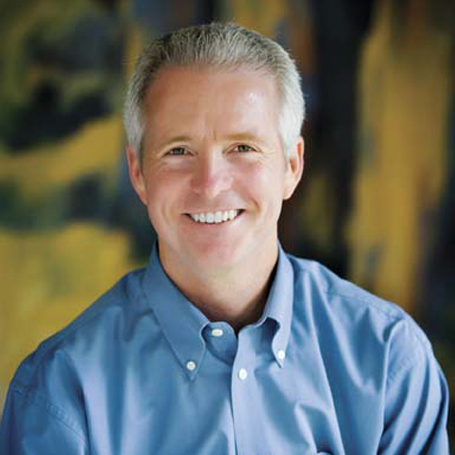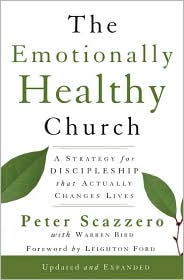 | |
| John Ortberg |
For example, before he met Christ, the Apostle Paul was a passionate, brilliant, zealous man, and he persecuted Christians. After he met Christ, he was a brilliant, passionate, zealous man, and those traits were instrumental to the spread of the gospel. In more recent times, Chuck Colson's drive, motivation and ambition led him to places of significant political influence and then to prison. After he met Christ, his drive, motivation and ambition led him to make an incredibly positive difference through prison ministries. Redemption is not replacement of the old, but its return to a better state. Ortberg concludes that God works His redemption in the life of everyone who is aligned with the Holy Spirit. "You won't just get holier, you will get you-ier," becoming more and more the excellent version of you that you were created to be.
 I was listening to this sermon on the way to Seattle for a two-day workshop on Fierce Conversations. "Fierce" is not about being bloody, cruel, or threatening, but robust, intense, strong, powerful, and passionate. "Fierce" conversations are ones in which we stop pretending, when we refuse to take the easy way out, when we bypass the simplistic answers that really don't mean squat. Fierce conversations are ones in which we function respectfully and without masks, showing up boldly as ourselves. Truly fierce conversations create respectful space that encourages others to show up boldly as themselves, too.
I was listening to this sermon on the way to Seattle for a two-day workshop on Fierce Conversations. "Fierce" is not about being bloody, cruel, or threatening, but robust, intense, strong, powerful, and passionate. "Fierce" conversations are ones in which we stop pretending, when we refuse to take the easy way out, when we bypass the simplistic answers that really don't mean squat. Fierce conversations are ones in which we function respectfully and without masks, showing up boldly as ourselves. Truly fierce conversations create respectful space that encourages others to show up boldly as themselves, too.Scott's "fierce" sounds to me like Ortberg's "you-ier," and both sound like Christ.







